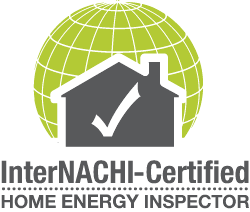It is important that you discover the condition of the potential home you are interested in before proceeding with an informed decision. And in this decision-making process, a Detroit Home Inspection plays a vital role. While a question that remains: how long does a home inspection take? This is the most common question that every homebuyer asks, and it also is important as understanding the time frame can assist the homebuyers in planning the next steps. Whether you’re an experienced investor or a first-time home buyer, it’s critical to understand how long the inspection will take and what to expect from the process. In this blog, we’ll cover the average home inspection time and the factors that may impact it.
Importance Of A Thorough Inspection
Making an informed decision when buying a new home requires conducting a thorough home inspection. You can spot any potential problems affecting the property’s value and livability by carefully inspecting every house component, from the foundation to the roof. A thorough home inspection might also save you from future unplanned costs and pricey repairs.
Furthermore, a home inspection may also give you valuable knowledge regarding the house’s energy efficiency, which will help you better understand your monthly utility expenses and the potential for long-term savings. Additionally, they can evaluate the house’s safety, spot any potential dangers and provide suggestions for how to deal with them.
It’s essential to take an active part in the home inspection process by asking questions and making notes. This will not only help you comprehend the inspector’s findings better, but it will also enable you to view the house from a professional’s view.
Average Length of a Home Inspection
A home inspection is an important stage of purchasing or selling a house. It offers an unbiased assessment of a house’s state, considering its framework, systems, and parts. The length of a home inspection in Detroit, Mi, can vary based on several variables, such as the size and age of the house, the kinds of systems and components being examined, and the inspector’s desired level of detail.
The inspector will check the roof, foundation, walls, windows, doors, electrical and plumbing systems, heating and cooling systems, and appliances both inside and outside the house during the inspection. In Detroit, Michigan, a single-family house inspection typically takes 2 to 3 hours. However, larger homes with extras like a pool or a detached garage can take longer, sometimes up to four hours.
It’s crucial to remember that a home inspection does not ensure future performance. Still, it can offer helpful information that can assist you in deciding the house you’re buying or selling. A home inspector will also give a thorough report of the findings.
Common Delays During The Inspection
Common delays during a home inspection happen frequently and might affect how quickly you can buy a house. By being aware of these delays, you may plan accordingly and avoid potential disappointment.
Access to the property is one of the most frequent causes of delays during a home inspection. There might be a delay in the inspection if the existing owners or tenants are not available to let the inspector in. Additionally, the process may slow down if the inspector runs into locked or inaccessible areas.
Discovering unforeseen problems is another frequent reason why a home inspection experiences a delay. The inspection may take longer if the inspector finds a problem that necessitates extra search, such as a leak or structural issue, as this will require more time to determine the problem’s scope.
There could also be a delay in home inspection due to bad weather. The inspector might not be able to inspect the roof or the exterior of the property if it is pouring or snowing, which could affect the overall accuracy of the inspection report.
The Benefits of a Longer Inspection Time
A lengthier inspection time for your home might have many advantages and give you a deeper understanding of the property. You may better comprehend the state of the house and spot any potential problems that might affect its worth by providing the inspector more time to look over its various components.
A complete inspection of every aspect of the house, including those that an inspector frequently misses in a quick inspection, is possible with a more extended inspection period. This includes inspecting the mechanical systems, such as the plumbing, heating, and cooling systems, as well as the attic, basement, and crawl spaces.
Furthermore, an extended inspection period gives the inspector more chances to spot potential safety risks, such as electrical problems or fire hazards. The inspector can assist you in comprehending the actions you must take to address these potential hazards and protect the safety of your future house by bringing them to your attention.
The inspector may take more accurate and thorough notes with a longer inspection period, which can be quite helpful when it comes time to negotiate with the seller. The inspector can assist you in making a confident and well-informed decision regarding the property by giving you a more thorough report.
Making the Most of the Inspection Time
You must make the most of your home inspection time to get the most out of the inspection process and make an informed decision when buying a new house. Here are some pointers to make the most of your time during a home inspection:
- Attend the inspection in person: You can ask questions, view the house via the inspector’s eyes, and have a better idea of the property’s condition by being present during the inspection.
- Make a list of questions: Prepare a list of questions about the property in advance, including its age, any upgrades or additions, and the state of the mechanical systems. This will allow you to maximize the time you have for your inspection and guarantee that all of your concerns are taken care of.
- Review the inspector’s report: Spend some time reading through the inspector’s report carefully, paying great attention to any potential problems or areas of concern. Utilize the report to discuss any necessary repairs with the seller before closing.
- Ask for an explanation: Be sure to ask for clarification if there is anything in the inspector’s report you do not understand. You can learn more from the inspector and better understand the property’s condition.









